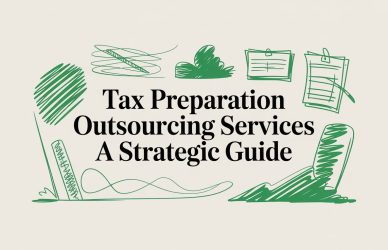In today’s competitive landscape, managing payroll in-house is more than just a routine administrative task. It’s a significant drain on time, resources, and strategic focus. From navigating complex tax laws and compliance regulations to ensuring data security and timely payments, the demands are relentless, pulling key personnel away from growth-oriented activities. This is why a growing number of businesses, from agile startups to established enterprises, are discovering the transformative benefits of outsourcing payroll.
Moving beyond a simple cost-saving measure, outsourcing payroll has become a strategic lever for enhancing operational efficiency, mitigating risk, and freeing up valuable internal teams to drive core business objectives. Before embarking on this shift, it’s crucial for smart businesses to calculate the return on investment (ROI) to truly understand the long-term value and strategic growth potential.
This comprehensive guide explores the eight most impactful benefits of outsourcing payroll, providing actionable insights into how this decision can unlock new levels of profitability. We will also highlight the distinct advantages of partnering with a U.S.-based provider, which blends global talent with domestic expertise to ensure unparalleled security, compliance, and strategic alignment with your business goals.
1. Reduced Administrative Burden and Time Savings (Operational)
One of the most immediate and impactful benefits of outsourcing payroll is the significant reduction in administrative workload, directly translating into substantial time savings. In-house payroll processing is a repetitive, time-intensive cycle involving meticulous data entry, complex tax calculations, benefit deductions, and payment distribution. These tasks demand precision and divert valuable hours from your HR and finance teams, preventing them from focusing on strategic, revenue-generating activities.
By offloading these responsibilities to a specialized provider, your internal staff can reclaim their time. Instead of chasing down timesheets or manually verifying withholdings, they can concentrate on core business functions like employee development, financial forecasting, and improving company culture. This shift from administrative upkeep to strategic contribution is a powerful catalyst for operational efficiency and growth. Partnering with a US-based provider adds another layer of efficiency, ensuring seamless communication across similar time zones and a deep understanding of federal and state labor laws, which minimizes back-and-forth and potential delays.

Real-World Impact
The efficiency gains are not just theoretical. Consider these examples:
- Zenefits and Guidepoint reported a 70% reduction in time spent on payroll processing after outsourcing.
- Small tech startups using ADP Workforce Now freed up an average of 40 HR hours per month.
- Mid-market companies leveraging Paychex services have seen payroll administration costs cut by as much as 35%.
These figures highlight how outsourcing payroll transforms it from a time-consuming cost center into a streamlined, efficient operation.
Actionable Implementation Tips
To maximize time savings and ensure a smooth transition, follow these best practices:
- Prioritize Automation: Choose a provider with a proven, highly automated platform and guarantees for system uptime to minimize manual intervention.
- Map the Transition: Before signing, request a detailed project timeline for data migration and system implementation to set clear expectations.
- Invest in Training: Ensure all internal users receive comprehensive training on the new platform to leverage its features effectively from day one.
- Establish Clear SLAs: Define and agree upon Service Level Agreements (SLAs) for critical deadlines, such as payroll submission and final processing, to maintain accountability. For businesses looking to extend these efficiency gains, exploring other outsourced services can be a logical next step. You can learn more about how outsourced virtual assistants can further reduce administrative tasks.
2. Cost Reduction and Improved Profitability (Financial)
One of the most compelling financial benefits of outsourcing payroll is the direct and significant reduction in operational costs. Maintaining an in-house payroll function involves far more than just employee salaries; it includes recurring expenses for specialized software, hardware, office supplies, ongoing training, and benefits for payroll staff. These combined direct and indirect costs create a substantial fixed overhead that can strain a company’s budget.
Outsourcing converts these fixed expenses into a more manageable, predictable variable cost. You pay a set fee for the services rendered, eliminating the need to invest in costly infrastructure and dedicated personnel. A US-based payroll provider amplifies these savings by ensuring expertise in complex local and state tax laws, which helps prevent costly compliance errors and penalties. This strategic shift not only cuts expenses but also improves profitability by allowing capital to be reallocated toward core growth initiatives.

Real-World Impact
The financial gains from outsourcing are well-documented across businesses of all sizes. Consider these figures:
- Small businesses using platforms like Gusto have reported reducing their direct payroll processing costs by up to 40% compared to managing it in-house.
- Companies leveraging ADP often save between $12,000 and $25,000 annually on payroll infrastructure and staffing costs alone.
- Large enterprise firms using integrated systems like Workday have successfully cut payroll administration expenses by over $500,000 per year.
These examples demonstrate how outsourcing transforms payroll from a necessary but expensive administrative function into a streamlined, cost-effective operation.
Actionable Implementation Tips
To maximize your cost savings and achieve a strong return on investment, consider the following strategies:
- Calculate Total Cost of Ownership (TCO): Before choosing a provider, conduct a thorough analysis of your current in-house payroll costs, including software, staffing, training, and supplies, to create a clear benchmark for comparison.
- Negotiate for Value: Inquire about discounts for multi-year contracts or bundled services. A longer-term partnership can often lead to more favorable pricing.
- Seek Transparent Pricing: Opt for providers with clear, straightforward pricing models that do not include hidden fees for services like year-end tax forms or direct deposit setup.
- Factor in Indirect Savings: Remember to account for the financial benefits of reduced errors, avoided compliance penalties, and reclaimed employee time in your ROI calculation. Exploring how other outsourced functions contribute to savings can provide a holistic view; you can discover more about business process outsourcing benefits.
3. Enhanced Compliance and Regulatory Management (Compliance)
Navigating the intricate and ever-changing landscape of tax regulations is a significant challenge for any business. Outsourcing payroll transfers this burden to experts whose core business is to maintain up-to-the-minute knowledge of complex federal, state, and local tax laws. Professional providers guarantee that withholdings, filings, and deposits are handled accurately and on time, dramatically reducing the risk of costly penalties and audits associated with non-compliance.
This is where the benefits of outsourcing payroll truly protect your bottom line. A dedicated provider acts as your regulatory shield, automatically updating their systems to reflect new tax codes, deduction limits, and reporting requirements. Working with a US-based partner ensures an intrinsic understanding of the nuances between different state and municipal jurisdictions, from California’s complex wage laws to New York City’s specific tax requirements, preventing oversights that can lead to significant financial liabilities.

Real-World Impact
The risk mitigation provided by payroll experts is well-documented:
- ADP processes over $2 trillion in payroll annually and maintains an impressive 99.9% compliance accuracy rate.
- Paychex manages tax compliance across all 50 states and prides itself on a record of zero missed tax deadlines for its clients.
- Clients using Zenefits for automated tax compliance reported a 95% reduction in payroll-related penalties.
- Mid-market companies that switched to BambooHR for payroll processing were able to completely eliminate payroll tax errors.
These statistics underscore how outsourcing transforms compliance from a major business risk into a managed, reliable function.
Actionable Implementation Tips
To ensure your organization achieves maximum compliance and protection, follow these steps:
- Verify Certifications: Thoroughly vet a potential provider’s certifications (like FPC and CPP) and their historical compliance track record.
- Seek Indemnification: Prioritize providers that offer guaranteed compliance or an indemnification clause, which means they assume financial responsibility for any tax filing errors they make.
- Request Audit Reports: Ask for quarterly compliance audit reports to ensure transparency and verify that all processes meet regulatory standards.
- Establish Communication Channels: Maintain a regular communication cadence with your provider to stay informed about regulatory changes that may impact your business.
- Document Everything: For internal audit purposes, document all compliance procedures and communications with your payroll partner.
4. Access to Advanced Technology and Data Security (Operational)
Managing payroll in-house requires a significant, ongoing investment in technology, from software licenses and server maintenance to robust cybersecurity measures. Outsourcing payroll provides immediate access to an enterprise-grade technology stack without the prohibitive capital expenditure. Leading providers invest millions in developing and securing their platforms, offering sophisticated cloud-based systems, intuitive mobile applications, and powerful reporting dashboards that most small to mid-sized businesses could not afford to build or maintain on their own.
By leveraging a third-party provider, you gain the benefits of cutting-edge payroll technology that ensures accuracy, accessibility, and robust data protection. This approach future-proofs your operations against technological obsolescence and escalating security threats. Partnering with a US-based provider is particularly advantageous, as they adhere to stringent data privacy laws like CCPA and can offer localized support for integrating their technology with other US-centric business systems, ensuring a secure and compliant technology ecosystem.

Real-World Impact
The technological advantage of outsourcing is evident across the industry:
- Workday’s cloud infrastructure reliably serves millions of employees globally with a documented 99.99% uptime.
- ADP’s mobile app empowers employees with self-service features and has over 5 million downloads with a 4.5+ star rating.
- Paychex employs military-grade encryption for all data storage, providing a level of security that is difficult to replicate in-house.
- Gusto’s platform showcases superior integration capabilities, connecting seamlessly with over 500 business applications for a unified workflow.
These examples underscore how outsourcing payroll is not just a service but a strategic technology upgrade.
Actionable Implementation Tips
To ensure you fully capitalize on the technological and security benefits, follow these steps:
- Evaluate Security Certifications: Prioritize vendors with recognized security attestations like SOC 2 and ISO 27001 to validate their commitment to data protection.
- Verify Disaster Recovery Plans: Request and review the provider’s disaster recovery and business continuity plans to ensure your payroll can run uninterrupted.
- Test API Integrations: Before committing, conduct a proof-of-concept to test the provider’s API integrations with your existing HRIS, accounting, and ERP systems.
- Request Security Audits: Ask for recent third-party security audit reports and penetration testing results to gain transparent insight into their security posture.
5. Scalability and Flexibility for Business Growth (Strategic)
One of the most strategic benefits of outsourcing payroll is gaining the ability to scale your operations effortlessly. As your business grows, whether by hiring more employees, expanding into new states, or entering international markets, your payroll complexity grows exponentially. An in-house team can quickly become overwhelmed, requiring significant investment in new software, training, and additional staff to keep up.
Outsourcing transforms payroll from a potential growth bottleneck into a flexible, on-demand service. A specialized provider has the infrastructure, technology, and expertise to accommodate your expansion seamlessly. You can adjust service levels as needed, ensuring that your payroll processes evolve in lockstep with your business trajectory without the friction of building and rebuilding internal capacity. Engaging a US-based partner is particularly advantageous for domestic growth, as they possess an expert understanding of the varied and complex payroll regulations across all 50 states, ensuring a smooth transition as you expand your footprint.
Real-World Impact
The value of this scalability is evident in high-growth scenarios:
- DocuSign famously scaled from 500 to over 10,000 employees using ADP, avoiding the immense challenge of expanding its internal payroll department during a period of rapid headcount growth.
- Startups using Gusto can grow from a handful of founders to thousands of employees on the same platform, maintaining consistency and efficiency.
- Acquisition-heavy companies leverage platforms like Workday to rapidly absorb and integrate the payroll systems of newly acquired entities, standardizing processes quickly.
These examples show how outsourcing provides the critical infrastructure to support, rather than hinder, ambitious growth plans.
Actionable Implementation Tips
To ensure your chosen partner can scale alongside your business, consider these steps:
- Verify High-Growth Experience: Choose a vendor with a proven track record of supporting companies through rapid growth phases. Ask for case studies.
- Plan for Future Headcount: Ensure the provider’s platform and service model can comfortably handle your projected headcount growth over the next three to five years.
- Negotiate Flexible Tiers: Discuss and negotiate pricing tiers that are explicitly aligned with your growth projections to avoid unexpected cost escalations.
- Assess Multi-State/Global Capabilities: If expansion is on your roadmap, confirm the provider has robust capabilities for managing payroll across multiple states or countries.
6. Risk Mitigation and Liability Protection (Compliance & Strategic)
Beyond simple compliance, outsourcing payroll strategically transfers a significant portion of operational and financial risk to the service provider. In-house payroll management leaves your company solely responsible for any errors, from minor miscalculations to major tax filing mistakes, which can lead to severe penalties, audits, and legal disputes. Reputable payroll providers assume this liability, insulating your business from these potentially devastating consequences.
This transfer of risk is a cornerstone benefit of outsourcing payroll. Top-tier providers back their services with financial guarantees, including robust errors and omissions (E&O) insurance and indemnification clauses in their contracts. This means if they make a mistake, they are contractually obligated to cover the associated costs and penalties. Partnering with a US-based provider enhances this protection, as they operate under the same legal and regulatory frameworks, ensuring their liability coverage is directly applicable and enforceable within the U.S. judicial system.
Real-World Impact
The financial protection offered by providers creates a powerful safety net. Consider these examples of risk mitigation:
- ADP guarantees tax filing accuracy and offers penalty protection, covering associated fees for any errors they make.
- Paychex provides clients with comprehensive compliance services backed by insurance, protecting businesses from the financial fallout of regulatory mistakes.
- TriNet, operating as a Professional Employer Organization (PEO), takes on co-employment status and assumes significant liability for employment law and compliance on behalf of its clients.
- Zenefits offers indemnification for tax and compliance errors made by its system, giving businesses confidence in its platform’s accuracy.
These examples demonstrate how outsourcing shifts the burden of liability from your balance sheet to a dedicated, insured partner.
Actionable Implementation Tips
To ensure you fully leverage this liability protection, take these steps during vendor selection:
- Verify Insurance: Request and review the provider’s certificate for errors and omissions (E&O) insurance to confirm coverage levels and terms.
- Scrutinize Indemnification: Carefully examine the indemnification clause in the service agreement to understand the scope of protection and any liability caps.
- Assess Financial Stability: Choose a provider with strong financial stability ratings to ensure they can honor their guarantees if a significant issue arises.
- Clarify PEO Liability: If considering a PEO model for maximum risk transfer, clearly define which employment liabilities are transferred and which remain with your company.
7. Improved Data Analytics and Strategic Insights (Strategic)
Outsourcing payroll transcends simple payment processing; it unlocks a wealth of data that can drive strategic business decisions. Modern payroll providers offer sophisticated reporting and analytics platforms that transform raw payroll data into actionable intelligence. This empowers leaders to gain deep insights into labor costs, workforce trends, compensation patterns, and overtime usage, shifting HR and finance from reactive administration to proactive strategy.
By leveraging these powerful tools, you can move beyond basic reporting to conduct detailed analyses. This data-driven approach allows for more accurate budget forecasting, identifies opportunities for cost optimization, and informs competitive compensation strategies. Partnering with a US-based provider enhances this benefit, as they offer analytics benchmarked against relevant domestic market data, providing a clearer picture of where your organization stands against industry peers in real-time.
Real-World Impact
Harnessing payroll data delivers a clear competitive advantage. Consider these examples:
- Workday’s analytics have helped organizations reduce overall labor costs by an average of 10-15% by identifying and addressing inefficiencies.
- Small businesses using Gusto’s dashboards gain access to compensation benchmarks, enabling them to optimize salary strategies and improve talent retention.
- Fortune 500 companies rely on ADP DataCloud for complex workforce planning, using predictive analytics to model future staffing needs and costs.
These cases demonstrate how the benefits of outsourcing payroll extend into strategic planning, providing the clarity needed to make informed, impactful business decisions.
Actionable Implementation Tips
To transform your payroll data into a strategic asset, follow these best practices:
- Request a Demo: During vendor selection, insist on a live demonstration of their analytics and reporting capabilities to assess their power and user-friendliness.
- Customize Your KPIs: Ensure the provider’s platform allows you to create custom dashboards and reports tailored to your specific Key Performance Indicators (KPIs).
- Verify Integration: Confirm that the payroll system can seamlessly integrate with your existing HRIS, ERP, and accounting software to create a single source of truth for workforce data.
- Establish a Cadence: Schedule regular meetings with key stakeholders to review payroll analytics, discuss trends, and translate insights into actionable business strategies.
8. Enhanced Employee Experience and Self-Service Capabilities (Operational & Strategic)
Beyond pure operational efficiency, outsourcing payroll significantly enhances the employee experience. Top-tier providers offer robust, intuitive employee self-service (ESS) portals that empower your team to manage their own payroll information. This access gives them autonomy over their financial data, from accessing pay stubs and year-end tax documents to updating direct deposit details and personal information without HR intervention.
This empowerment directly translates to higher employee satisfaction and reduces the administrative burden on your HR department. A positive, seamless payroll experience is a crucial touchpoint that shapes an employee’s overall perception of the company. Partnering with a US-based provider ensures the platform is designed with an intuitive understanding of American workers’ expectations and mobile habits, leading to a more frictionless and satisfying digital employee experience. For more on this topic, it’s worth exploring the nuances of understanding and improving the digital employee experience.
Real-World Impact
Leading payroll platforms demonstrate clear improvements in employee engagement:
- The ADP mobile app has over 5 million downloads and maintains an average employee satisfaction score of 4.6 out of 5 in app stores.
- Employees using Gusto consistently report 95%+ satisfaction with its user-friendly self-service portal and clear pay stub breakdowns.
- Companies like Adroll leverage instant pay features from providers like Square to attract top talent in competitive markets, giving workers immediate access to their earnings.
These examples show how a key benefit of outsourcing payroll is a modern, accessible interface that meets the digital expectations of today’s workforce.
Actionable Implementation Tips
To ensure your team fully adopts and benefits from these new tools, focus on a strategic rollout:
- Prioritize a Mobile-First Interface: Choose a provider whose platform is intuitive and optimized for mobile devices, as this is how most employees will interact with it.
- Promote Features During Onboarding: Introduce the self-service portal as a key employee benefit during the onboarding process to drive early adoption.
- Implement Robust Security: Ensure the platform includes multi-factor authentication (MFA) and other advanced security protocols to protect sensitive employee data.
- Consider Competitive Pay Features: Evaluate providers that offer innovative options like on-demand or instant pay to use as a recruitment and retention advantage.
Payroll Outsourcing: 8-Benefit Comparison
| Item | Implementation Complexity | Resource Requirements | Expected Outcomes | Ideal Use Cases | Key Advantages |
|---|---|---|---|---|---|
| Reduced Administrative Burden and Time Savings (Operational) | Low–Medium: vendor setup, data migration, training | Minimal internal staff time; vendor platform & support | Significant time savings; fewer manual errors; faster payroll cycles | SMEs, limited HR capacity, firms wanting operational efficiency | Frees HR for strategic work; reduces errors; accelerates payroll |
| Cost Reduction and Improved Profitability (Financial) | Low–Medium: contract negotiation and cost analysis | Reduced staffing/infrastructure; per-employee fees | Lower total payroll costs; predictable expenses; ROI in 18–24 months | Businesses seeking cost predictability and lower TCO | Converts fixed costs to variable; scalable pricing; lower TCO |
| Enhanced Compliance and Regulatory Management (Compliance) | Medium: integration and vendor validation | Reliance on vendor compliance expertise; potential filing fees | Reduced compliance risk; high tax accuracy; audit-ready records | Multi-state/international payroll; regulated industries | Automatic tax updates; fewer penalties; documented audit trails |
| Access to Advanced Technology and Data Security (Operational) | Medium: API/integration and security validation | Vendor-managed cloud, security certifications, integration work | Enterprise-grade tech access; improved security and uptime; analytics | Remote workforces, limited IT budgets, mobile-first orgs | Strong encryption, high uptime, mobile access, analytics |
| Scalability and Flexibility for Business Growth (Strategic) | Low–Medium: onboarding and contract scalability clauses | Scalable vendor services; possible contract renegotiation at thresholds | Seamless headcount scaling; support for expansion and acquisitions | High-growth startups, M&A activity, seasonal workforce | Rapid scaling without internal hires; multi-region support |
| Risk Mitigation and Liability Protection (Compliance & Strategic) | Medium: legal review of indemnities, insurance and SLAs | Vendor E&O insurance, indemnification terms, possible PEO costs | Reduced litigation and compliance exposure; insurance-backed protection | Companies with high compliance risk or liability concerns | Liability transfer, compliance guarantees, insurance coverage |
| Improved Data Analytics and Strategic Insights (Strategic) | Medium–High: data integration and dashboard configuration | Integration with HR/finance systems; custom reporting resources | Actionable labor insights; better forecasting; cost-saving opportunities | Data-driven HR/finance teams, workforce planning initiatives | Real-time dashboards, benchmarking, predictive analytics |
| Enhanced Employee Experience and Self-Service Capabilities (Operational & Strategic) | Low–Medium: user rollout, mobile enablement, training | Employee training and support; mobile app adoption; integration | Higher employee satisfaction; fewer HR tickets; faster issue resolution | Distributed workforces, talent-focused employers | 24/7 self-service, mobile access, transparent payroll info |
Choosing Your Payroll Partner: The U.S. Advantage
The journey through the numerous benefits of outsourcing payroll reveals a clear path toward a more efficient, secure, and strategically focused business. Moving payroll from an in-house administrative burden to a managed service is not merely a delegation of tasks; it is a fundamental operational upgrade. We have explored how this transition liberates valuable time, significantly reduces operational costs, and fortifies your company against the ever-present risks of regulatory non-compliance.
By entrusting this critical function to experts, you gain immediate access to advanced technology, robust data security protocols, and specialized knowledge that would be prohibitively expensive to build and maintain internally. The strategic advantages are equally compelling. Outsourcing provides the scalability to grow without constraint, mitigates significant financial and legal liabilities, and transforms raw payroll data into actionable business intelligence. Ultimately, it enhances the employee experience by providing reliable, accurate, and accessible payroll services, which is a cornerstone of employee satisfaction and retention.
Key Takeaways and Your Strategic Next Steps
As you consider this pivotal business decision, remember that the goal is to find a partner, not just a processor. The true value is realized when your provider acts as a strategic extension of your team. To translate these benefits from concept to reality, your next steps should be methodical and purposeful.
- Conduct an Internal Audit: Before looking outward, look inward. Quantify the time your team currently spends on payroll-related tasks. Calculate the “soft costs” associated with this time, including administrative hours, error correction, and staying updated on tax laws. This data will build your business case.
- Prioritize Your Needs: Review the benefits discussed in this article. Are you most concerned with compliance risk? Is scalability for rapid growth your top priority? Or is cost reduction the primary driver? Ranking your needs will help you evaluate potential partners against a clear set of criteria.
- Evaluate the U.S. Advantage: When shortlisting providers, give special consideration to U.S.-based partners. A domestic provider operates under the same complex web of federal, state, and local tax laws you do, offering an inherent layer of compliance expertise. Furthermore, keeping your sensitive employee data within U.S. jurisdiction ensures it is protected by stringent domestic privacy and security laws, a crucial consideration in today’s data-sensitive world.
The Unmistakable Value of a U.S.-Based Partner
Choosing a U.S.-based outsourcing partner offers a unique blend of security, expertise, and seamless communication. There are no time zone barriers to overcome for urgent support, and you gain the assurance that your partner has a deep, first-hand understanding of the American business and regulatory landscape. This domestic alignment minimizes misinterpretation and ensures that compliance is not just an item on a checklist but an integrated part of their service DNA. By making this strategic choice, you are not just outsourcing a function; you are investing in peace of mind and a more resilient operational foundation, allowing you to focus completely on driving your business forward.
Ready to unlock the full potential of your business by leveraging the strategic benefits of outsourcing payroll? Discover how the U.S.-led, globally-powered model at NineArchs LLC provides the perfect balance of expertise, security, and cost-efficiency. Visit NineArchs LLC to schedule a consultation and build a more scalable, compliant, and profitable future for your company.









